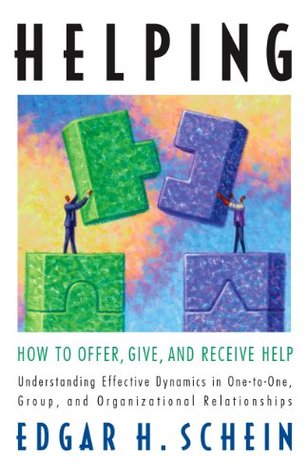More on this book
Community
Kindle Notes & Highlights
Read between
November 4 - December 17, 2022
Trust is needed for the client to reveal what is the real problem, to be able to accept what is offered, and to implement whatever resolution might come out of the conversation with the helper.
that is precisely what good teamwork is—successful reciprocal help.
all relationships in human cultures are to a large degree based on scripted roles that we learn to play early in life and which become so automatic that we are often not even conscious of them.
Social interaction is, therefore, either a delicate balancing act of mutual face maintenance or an opportunity to gain status, in what Stephen Potter calls “one-upmanship” (1951).
self-esteem is based on continual acknowledgment through reciprocation that what we have claimed for ourselves has been accepted and confirmed.
perpetual mutual reinforcement is the essence of society.
Trusting another person means, in this context, that no matter what we choose to reveal about our thoughts, feelings, or intentions, the other person will not belittle us, make us look bad, or take advantage of what we have said in confidence.
trust means safety for our self-esteem.
In a deep relationship we make ourselves more vulnerable
when you ask for help you are putting yourself “one down.”


